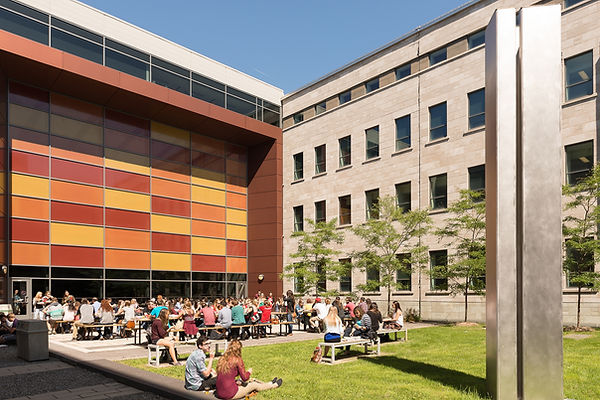Top French Speaking University with Long-term Commitment to Brazilian Partnership
February 28, 2015
When Brazilian students come to UL, it is generally to study hard sciences, such as engineering, nutrition, medicine, agriculture, or forestry. Mr. Poulin encouraged students to explore the university’s other reputable programs such as social science, business, arts and letters and philosophy. He also recommends students to consider PhDs, since more funding and scholarships are available for doctorate students. Although instruction at the university is entirely in French, students pursuing PhDs have the unique opportunity to learn French while enrolled in their programs.
Mr. Poulin emphasized that UL faculty has only the best things to say about Brazilian students: “We have received testimonials telling us that having Brazilian students was a great experience. These students have a sparkle in their eyes that we like to see in our students.”
Universite Laval
Université Laval

Before there was the Science without Borders program, Université Laval (UL) was already active in Brazil. As Director of the International Office Richard Poulin explained, the university directors saw great potential for collaboration and sought out partner universities as early as fifteen years ago.
“We have been proactive and have not necessarily waited for something to happen. Brazil is a country that has many similarities with Canada. We should be allies,” added Mr. Poulin.
Université Laval is, in fact, the oldest French-speaking university in the Americas, with origins as a seminary in 1663. Located in Québec City, it is home to 48,000 students, 5,000 of whom are international. The university is comprehensive, research-intensive, and, in terms of research dollars, ranks among the top 10 Canadian universities with approximately 100 research chairs.


UL has been sending students on exchanges to PUC-Rio for about ten years and has established research partnerships with various Brazilian universities such as the Federal University of Minas Gerais in law, the University of São Paulo in nutrition, São Paulo State University in photonics, PUC-Paraná in transportation, and the State University of Campinas in material science.
“For about a decade, we have been going to Brazil a few times per year to collaborate,” shared Mr. Poulin. In terms of future collaboration, the International Office aims to form partnerships with a couple universities in Northern Brazil and increase outbound student exchange. Mr. Poulin added, “We have objectives to see more of our students go to Brazil. The fact that there are more possibilities to study in English makes it easier.”















